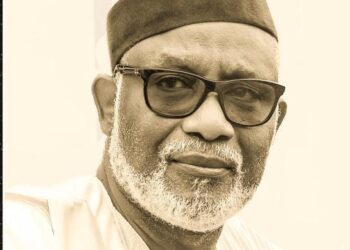The “independent” Nigeria clocked 62 amidst wails, sniffles and a few hopeful smiles sparked by feelings of nostalgia. While this milestone was crossed, the APNETi (All Poets Network international) online community witnessed a splash of poetic pieces in different hues, sparked by different perspectives about the 62-year old Nigeria.
The poems rendered on the WhatsApp chat group that has seen many masterpieces were admirably presented in different languages: English, Hausa, and even a Nupe poem titled “Najeriya” by Hussaina Idris Manarakis. Hence, scrolling down the conversations of the group chat, one would come across poems with titles such as “A United Nigeria”, “Ranar ‘Yancin Kai”, “Stop Raping Me!”, “Mu Kara Son Ta”, “One Nigeria”, “Nijeriya”, and many more.
Certainly, Nigeria constitutes a hot topic among analysts both within the country and the diaspora. Hence, it came as no surprise that the country’s 62nd Independence Anniversary inspired many creative minds to pen down essays, articles and poems. Some of the creative works explored Nigeria’s history, along with its ups and downs. According to Sadiq Abba Abubakar (Jnr), Nigeria may be likened to a woman who has been into many “marriages”, most of them quite unfortunate.
Meanwhile, in the APNETi chat group, the sorrowful dirges lamenting the current state of Nigeria greatly outnumbered the hopeful poems. Majority of the poems reflected the views of many Nigerians who regard Nigeria as a failure, a nation with a bleak future.
One of such poems was Abu Ammar’s “Ranar ‘Yancin Kai”, an ENGAUSA poem that paints a picture of the sorry state Nigeria finds herself in by enumerating the problems crippling the nation and hindering its progress. Another poem with the same title was rendered by Mohammed Bala Garba in a prayerful tone, beseeching the Almighty to intervene in the affairs of our country, Nigeria.
Other poems, such as Dr. Murtala Uba’s Hausa poem titled “’Yanci”, were written in a satirical tone that hints at just how far from true freedom and independence Nigeria is. Meanwhile, Khalid Imam’s poem, “Akwai ‘Yanci Kasa Ta”, emphasises that freedom and peaceful living, as well as favourable living conditions, are indeed within the reach of Nigeria, just like what the citizens of previous generations witnessed. However, such conditions will only be attainable with efforts from the part of the citizens, as the nation is a farm that should be cultivated properly, with weeds uprooted, in order to enjoy a bountiful harvest.
A poem titled “The Burden” by Faruk Sarkinfada describes Nigeria as a nation with abundant means but failing systems and resources depleted by greedy “leaders”. The poem, though short, ends with a poke at the conscience of Nigerians, awakening their sense of responsibility towards the future of the nation.
Interestingly, some of the poets spoke with Nigeria’s voice, such as Ibrahim Sheme’s “Stop Raping Me!”, which challenged the perpetrators of abuse against Nigeria right from when the “last white ship departed”, signifying an “end” to the colonial era. Unfortunately, Nigeria has been continually raped and ripped of resources, passed from one abusive power to the other.
However, the APNETi arena wasn’t merely a host to lamentations, as some of the poems were quite patriotic, and a number of them brimmed with hope for a better Nigeria. For example, “Nigeria My Country”, penned by Khalid Imam, came across as a patriotic piece urging Nigerians to embrace their land and satiate the hunger that fuels the fire of crises by exemplifying tolerance and understanding. In a similar vein, Zainaba Sale’s poem, titled “Nigeria”, exudes a graceful aura of Nigeria’s uniqueness and great potential.
Fatima A.Y.M.’s poem, titled “One Nigeria”, presented a “literary” conversation between the poet and Nigeria. The rhythmic poetic piece features questions and answers between the duo as they weave a path from the many problems of the nation towards possible solutions, key among which is unity. With a similar objective, Babaji Rabilu Saleh’s poem called upon Nigerians to unite and stand firm, as nations are known to thrive only if united.
Interestingly, some of the poems were presented in a patriotic and hopeful spirit, such as “Mu Kara Son Ta”, by Khalid Imam, and “This I Know” by Umaisha Sumaila, both optimistic regarding the future of Nigeria, if the right measures are taken.
All in all, it can be established that Nigeria isn’t a completely hopeless nation. However, we, its citizens, shouldn’t be preoccupied with lamentations and complaints, or fold hands waiting for “angels” to rescue our nation. Though satire is often used to draw attention of people towards societal problems, it becomes too much when all we do is complain or mock the status quo.
Instead, we should take the initiative to right our wrongs and play our part towards making Nigeria great again. For creative writers, this could be achieved through poetry. After all, it is a great avenue for enlightening the society and awakening it from its slumber, while facilitating progressive change.
* By Fatima Garba Yusuf (A.Y.M.) can be reached via her email: faym2001@gmail.com





